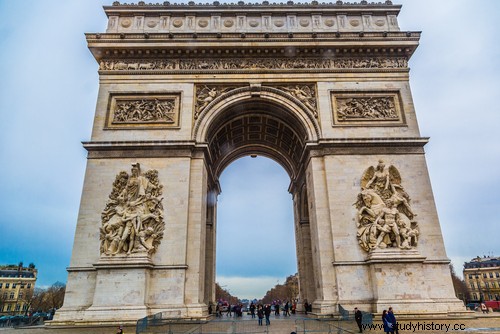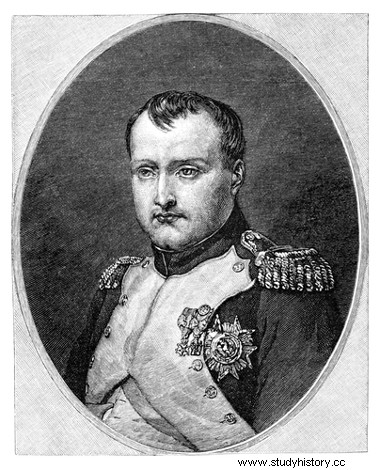
By Me. Cláudio Fernandes
In the course of the French Revolution In the last two decades of the 18th century, the Jacobins took power and installed the so-called “phase of terror” or “Terror Revolutionary ”. In this phase, which became crucial from the year 1793 onwards, a series of crises began to occur in France, both political and economic and military. Such crises implied the dissatisfaction of the more moderate political sectors, which began to articulate the removal of the Jacobins from power. For that, it became necessary to establish a new political structure that would be managed by a skilled leader with great popular prestige.
Napoleon Bonaparte, despite his youth, stood out as one of the most respected generals of the French army during the Revolution. His skill in war was due to several factors, but mainly to the real reform he undertook with his troops, granting advantages, motivation, professionalization and, above all, the infusion of a national spirit in the soldiers. Napoleon's army was the first people's army in history linked to the idea of a nation – the French Nation –, unlike traditional armies that were eminently aristocratic.
Napoleon assumed power supported by sectors of the bourgeoisie who wanted the end of the Directory, commanded by the Girondins. Napoleon was thus able to repress both the revolutionaries who were on the left and the monarchists who were on the political right in France at the time. The political-military maneuver that put him in power became known as the 18 Brumaire coup (name referring to the day and month of the revolutionary calendar) in 1799. In the year following the coup, a new Constitution was promulgated, strengthening the Executive Power and giving Napoleon the post of consul for life.

Napoleon went from young general to Emperor of France, establishing a family dynasty
However, given the enormous power that came to be concentrated in the position of consul, Napoleon crowned himself in 1804 at Notre-Dame Cathedral in Paris, becoming Emperor of the French – this fact became a symbol of the total independence that the new emperor came to have in relation to the Church, since before it was the Pope who crowned the King.
From then on, Emperor Napoleon began to establish a series of changes in France, from the rehabilitation of the Catholic Church, promoting reforms in the clergy and, to a certain extent, controlling it , until the institution of a new Civil Code, which came to structure a complex legislation that until today is reflected in Constitutional and International Law around the world.
In addition, Napoleon also sought to expand his empire to various regions of Europe. His campaigns against Prussia and Russia became notorious. The French national army achieved spectacular victories against the other aristocratic armies. To the conquered peoples, Napoleon gave the justification that he “freed” them from the structure of absolutism, or the Old Regime, which was in force until then in several European countries.
The main obstacle to Napoleon's projects was the British Empire. Great Britain, consisting of a group of islands, was not exposed to attacks by Napoleonic infantry and, nevertheless, had the most powerful navy in the world at the time. Napoleon therefore sought to establish a different strategy against the British:to block them economically. This strategy became known as “Continental Blockade ” and consisted in pressuring European nations that were under the influence of France not to establish a commercial link with England. It was in this context that the Portuguese king, D. João VI, who was supported by Great Britain, fled with his court to Brazil – until then a colony – for not complying with Napoleon's determinations.
From 1813 to 1815, Napoleon gradually suffered wear and tear in his empire, especially due to the great resistance that countries such as the United Kingdom, Austria, Prussia and Russia offered to his rule. The most famous battle that marked Napoleon's decline was the Battle of Waterloo , from which he was defeated. The Bourbon dynasty was restored in France and King Louis XVIII ascended the throne. Thus ended the dynastic reign of Napoleon, who was exiled to the island of Saint Helena and died there in 1821.
*Image Credits:Shutterstock and S-F.
Take the opportunity to check out our video lesson related to the subject:
